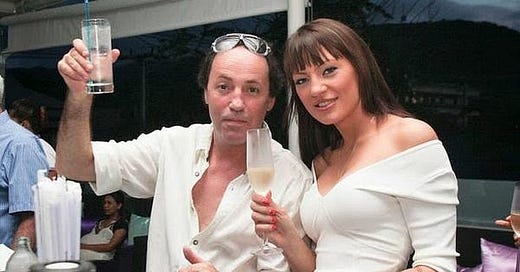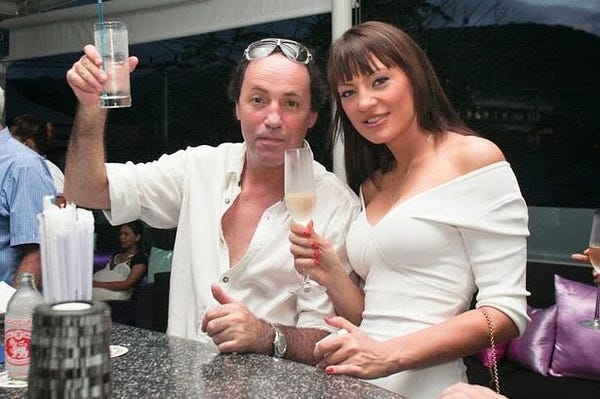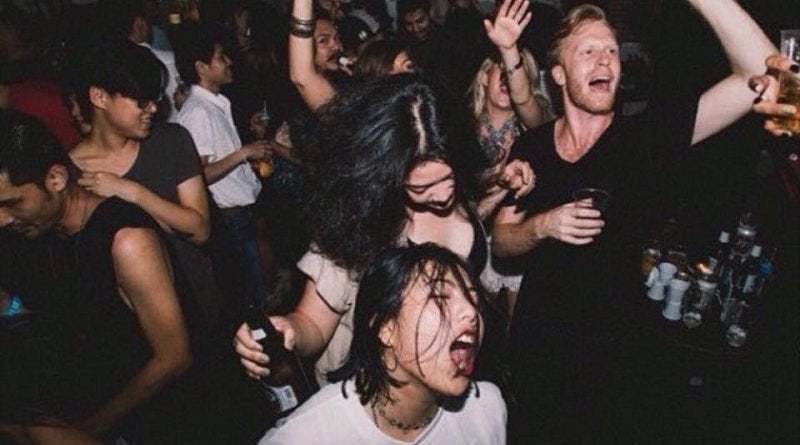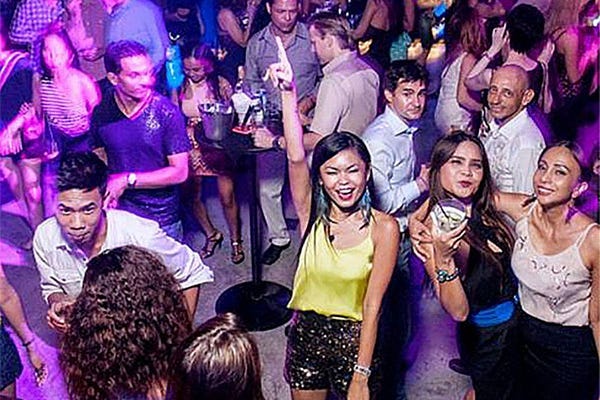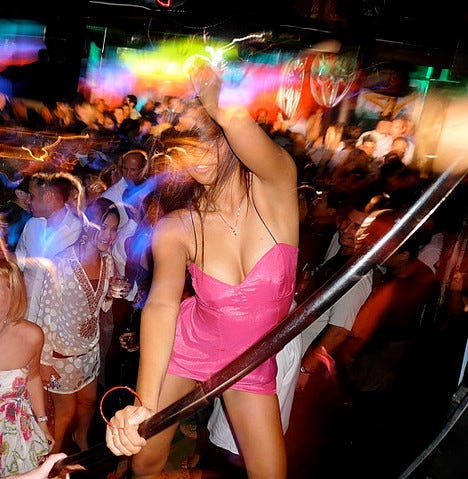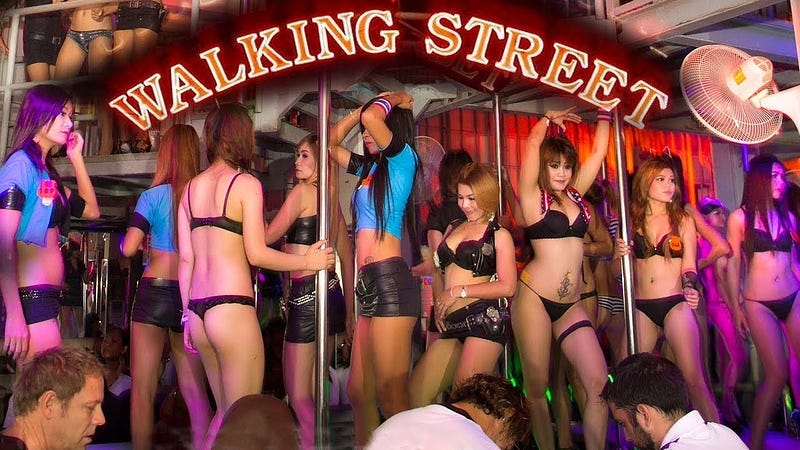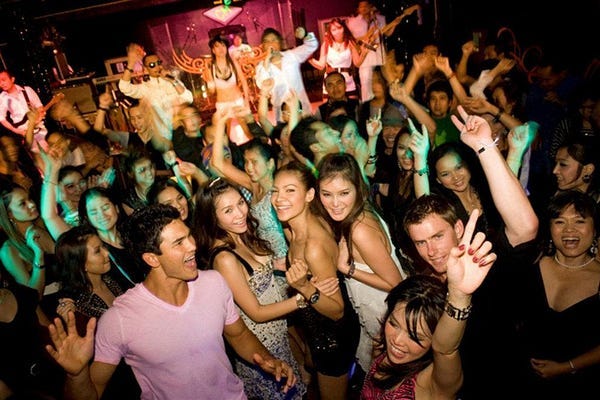Thailand: The Varieties of Expatriate Experience. The Tartan Pimpernel. A Sense of Place Magazine, 8 July, 2020.
By John Stapleton
Walter ‘Whacky’ Douglas looked like he was having a fine old time when he was arrested and deported from Thailand in 2014.
Douglas, known as “The Tartan Pimpernel” and once described as one of Britain’s ten wealthiest drugs traffickers, disappeared from official view in the late 1990s after a career linked to narcotics. As one of the world’s principle centres for opium trafficking in the 19th Century, heroin in the 20th Century and methamphetamines in the 21st Century, and with easily bribed officials, Thailand has long proven a comfortable hideout for smugglers.
When he was tracked down to the island of Koh Samui in 2013 Douglas claimed stories about him were grossly exaggerated. “No charges are pending,” he said.
But early in 2014 police raided The Tartan Pimpernel’s villa on the north coast of Koh Samui as well as his nightclub Dreamers, where he went under the name of Bobby Brown.

Whacky Douglas was flown to Bangkok and put on a London bound plane which was met at Heathrow by officers of the National Crime Agency.
Bangkok based British journalist Andrew Drummond wrote that Douglas’s deportation and arrest in police custody had caused a panic among a group of British expats, known to British police, living in an enclave in Bang Rak, Koh Samui, just five minutes from the airport.
Other expats from Bang Rak had been arrested when they returned to the U.K.
Douglas began his working life as a milkman in Glasgow. He didn’t stay there for long. His record includes arrest and time served for smuggling 18 tonnes of hash, along with ecstasy and cocaine, as well as money laundering to the tune of £150 million, of which he was acquitted. He was also charged with travelling on a false passport.
Douglas was also one of many people interviewed in connection with the 1990 murder in Marbella of Great Train Robber Charlie Wilson. He spent his time between Thailand and southern Spain, where he also owned Dreamers clubs.
“What is the appropriate behaviour for a man or woman in the midst of this world, where each person is clinging to his piece of debris? What’s the proper salutation for people as they pass each other in this flood?” Anon.
They do not want to go home
Many of them would be arrested if they did so.
Thailand’s courting of foreigners has led to the arrival not just of respectable retirees and senior business people, but to a bevy of colourful characters, many of whom are regarded as criminals in their own countries.
Those on the wrong side of the law find, just as do more legitimate investors, the Kingdom’s open slather version of capitalism, its easy approach to visas and corrupt immigration offices, along with a compliant officialdom where money greases all wheels, a congenial atmosphere in which to do business.
The British and American criminal classes find Thailand hugely attractive; a kind of safe house replete with cheap drinks and obliging, accomplished sex workers.
Head of the fugitives unit at the UK’s Serious Organised Crimes Agency (SOCA), Dave Allen, said Thailand was high on the list as a destination of choice among international criminals: “The attraction for Spain is still there, as there is a huge expat British population. The places we’re seeing them go to now are Thailand, certainly, South Africa, and the United Arab Emirates.”

Thailand has played host to international mafia gangs since the virtually uncontrolled immigration of the Chinese into the country during the latter half of the 19th Century. The Chinese now constitute an entrepreneurial upper-class of Thailand.
The ethnic Thais, with the heart of their culture based in rural villages, around ritual and congregation and their remarkable love for each other, have in general terms shown few business skills.
Treating them with contempt
The Chinese are notorious for treating the ethnic Thais with contempt, or as a servant class.
There is a common saying in Thailand the Thais themselves deeply resent: “If the Chinese hadn’t come here, the Thais would still be sitting under palm trees.”
The Thais complain bitterly that the Chinese pay them next to nothing and are not normal: They don’t drink. They don’t party. They barely seem to fall in love.
With the arrival of the Chinese came the infamous triads. At first, as the opium trade was still legal in the 19th Century, they ran the narcotics trade, along with opium and gambling dens and other smuggling operations. The gambling and smuggling produced handsome profits, further enhancing their power.
As the authoritative Thai Law Forum reports, the present-day Chinese mafias cannot be considered foreign anymore. Over time, they have become naturalised citizens. Ethnic Thais envy their wealth, but the Chinese now form an integral part of Thai society.
Unbeknown to most
Unbeknown to most tourists, they regularly interact with and financially support the Chinese triads while visiting Thailand’s infamous entertainment districts.
The Chinese criminal class run a broad spectrum of brothels, massage parlours, karaoke bars and escort services. All of these enterprises operate with the full protection of the Thai police.

The traditional red light district of Patpong in Bangkok, now finally in the process of being gentrified, and the interlinking streets running off the thoroughfare of Surawong, has many venues run by the Chinese.
Any longtime observer can watch a steady flow of drunken foreigners availing themselves of the mafia run brothels of Bangrak any time of the day or night. With an all pervasive contempt for the gullibility of foreigners, providing value for money is not in the triad’s hearts.
From outrageous over-charging by the operators themselves to the stealing of passports, cash and possessions by the sex workers thus employed, tourists are routinely fleeced under the noses of, or, more precisely with the assistance of, the local police.
John Stapleton worked as an Australian journalist and general news reporter for much of his life.
This post is extracted from his book Thailand: Deadly Destination.

